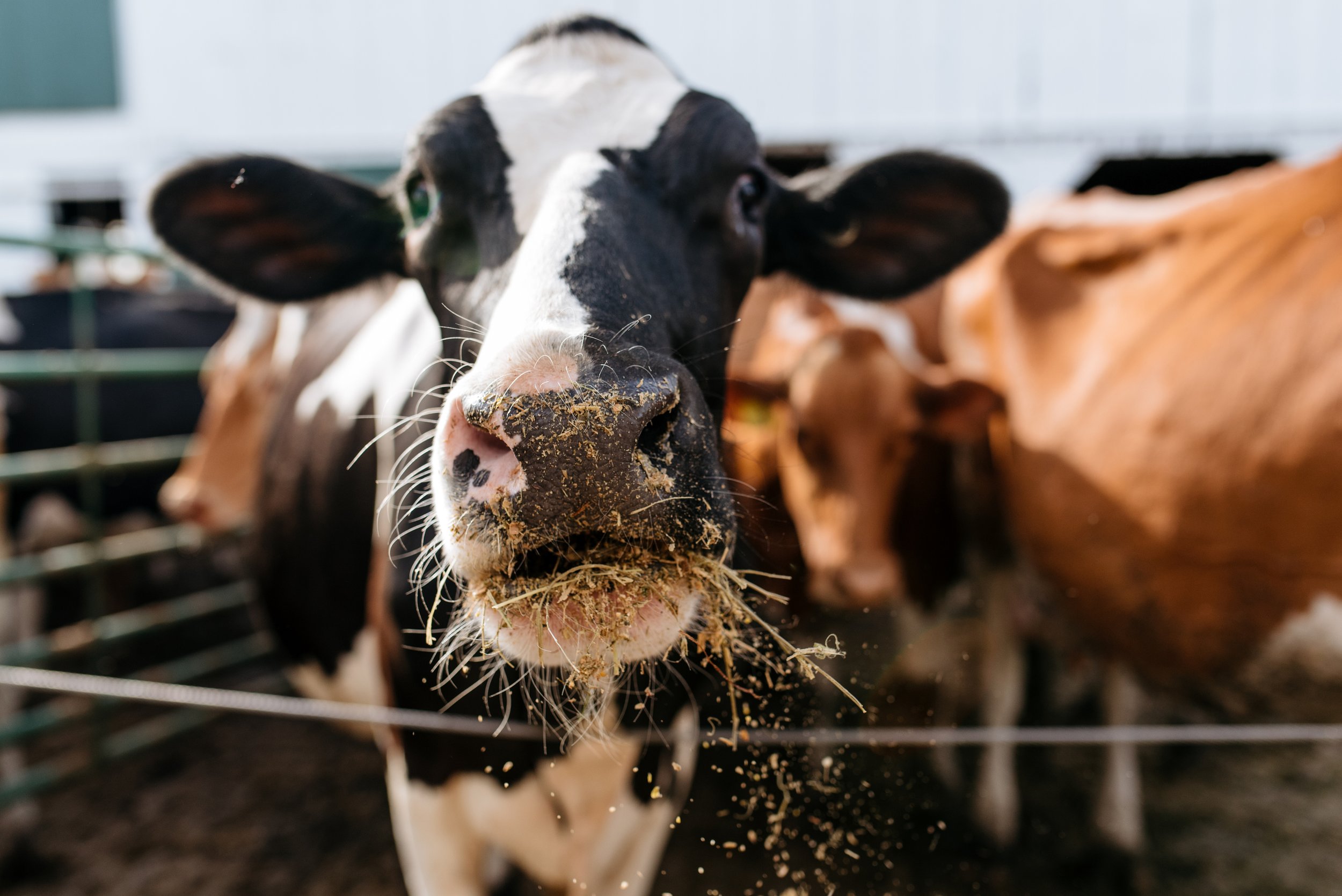Windfall Bio
Our Investment in Windfall Bio
Naturally transforming methane into organic soil nutrients
Limiting the drastic effects of climate change in the near future requires extensive reductions in methane emissions. Despite its lifespan of just 12 years in our atmosphere, methane emissions contribute to about 25% of the global warming we are experiencing due to its high warming potential—methane is over 80 times more potent than carbon dioxide. The majority of human-caused methane emissions stem from three sectors including, agriculture, energy, and waste, which contribute a respective 40%, 35%, and 20% of methane emissions globally. While several cost-effective solutions for methane leakage exist for the oil and gas industry, reducing emissions within food systems has historically proved to be more difficult. Methane emissions within agriculture, which mainly come from enteric fermentation from cows and manure, are difficult to measure and capture. Despite methane’s significant contribution to climate change, few scalable agriculture-oriented solutions have been developed that don’t require significant changes in production methods.
Windfall Bio is naturally transforming methane into organic soil nutrients.
Methane is far from the only issue in our industrialized food system that jeopardizes ecosystem health. Unsustainable agricultural practices, such as till farming, are reducing soil quality and nutrient content across the United States, perpetuating the already high use of synthetic fertilizer. Synthetic fertilizer, which enabled the Green Revolution in the 1960s, damages essential soil microbes and creates anoxic “dead” zones, all while requiring significant energy to produce. They also present an added cost for farmers, stretching their traditionally small profit margins.
At the intersection of agricultural methane emissions and fertilizer lies an opportunity to combat climate change while providing a cost-effective resource to farmers. Capitalizing on this opportunity, Windfall Bio is using methane-eating bacteria to convert methane emitted from dairy farms into organic fertilizer. We’re very excited to announce our investment in Windfall Bio as it mitigates climate change while facilitating profitable sustainable farming.
What is Windfall Bio?
Diagram of how Windfall Bio’s process works.
Windfall Bio is a nature-based agriculture technology company founded by Josh Silverman which aims to curb methane emissions from livestock. His pioneering methane capture system relies on methanotrophs, which are naturally occurring bacteria that convert methane into nitrogen-rich amino acids. When cultivated in dirt, these methane-eating bacteria metabolize methane and deposit nutrient byproducts into the soil, while increasing exponentially in numbers. The technology’s design is simple yet effective—-a steel box “digester” containing microbes and dirt is connected to a pipeline that carries dilute methane from enclosed dairy cow facilities to the digester. Once the bacteria metabolize the methane, the end product is a high-quality organic fertilizer and compost that can be used by the farmer or sold.
Adopting this methane-sequestration technology also enables farmers to participate in the “low GHG” food market, appealing to climate-conscious consumers. In general, users of Windfall Bio’s product will be able to leverage their farm as “climate friendly,” as well as participate in the growing carbon credit market. The technology’s end product of organic fertilizer is a resource for farmers to utilize and facilitates a quick adoption of the system. It reduces reliance on costly, carbon-intensive synthetic fertilizers, which in turn increases the farm’s resilience to supply chain issues. Therefore, Windfall Bio enables a substantial climate impact that also proves economically advantageous to users in both the production and sale process. While the initial participants of Windfall Bio are dairy farms, the company plans to expand across a range of methane emitters, such as waste-processing facilities and landfills.
Why did we invest?
Compelling Founder-Market Fit
Founder and CEO of Windfall Bio, Dr. Josh Silverman is the leading authority on methane transformation technologies. He holds a Ph.D. in Biochemistry from Stanford University and has over 20 years of experience in biotech research, innovation, and commercialization. He has founded several companies, including Calysta, Avidia, Versartis, and Diartis, which have raised more than $300M in equity financing, resulting in $1.7B cumulative exit value to date. He also currently sits on the board of several climate-focused biotech companies.
After co-founding Calysta, a company that creates food protein through fermentation, Josh pivoted to focus on tackling climate change. Leveraging his deep expertise in biotechnology and vast industry experience, Josh’s innovative idea for Windfall Bio quickly gained the support of investors with aligned visions for methane’s future. Supported by both the largest players in agronomy and accomplished climate investors such as Breakthrough Energy Ventures, we are extremely impressed with Josh’s ability to bring together a wide variety of stakeholders to create a profitable climate impact.
A Scalable Positive Impact for the Climate and Farmers
Concept art illustrating the potential of Windfall Bio’s methane-removal food labeling.
Windfall Bio creates a clear, positive impact by mitigating methane emissions and provides multiple avenues of increased profit for farmers (and other industries as the company expands). According to the United Nations Food and Agriculture Organization, livestock, including cows, are responsible for approximately 14.5% of global greenhouse gas emissions, with enteric fermentation being the largest contributor. Widespread implementation of Windfall Bio’s technology to capture methane emitted by dairy and livestock farms would drastically lower the carbon footprint of these industries. The technology itself also allows for a clearly measurable impact, which is rare within agricultural systems. Just measuring the methane content in the compost pile enables Windfall to calculate the mitigated emissions with certainty. The simplicity of Windfall Bio’s system and farmers’ familiarity with the fertilizer end product facilitates faster proliferation of the technology, enabling a large climate impact. Users of Windfall Bio also benefit from access to organic fertilizer and the growing sustainably-sourced food market, increasing profits without burdensome production changes.
By harnessing methane emissions while creating a valuable resource, Windfall Bio enables the food we know and love to be produced sustainably. We are excited to support Windfall Bio’s innovative technology in transforming the climate outlook of agriculture and generating a multitude of opportunities for farmers.




